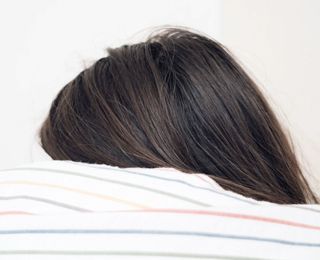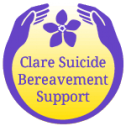What You May Be Feeling...
Grieving can be a long lonely road marked by times of hopelessness and despair. There is no way of avoiding this pain. Losing someone by what may appear to be a deliberate decision may heighten specific aspects of grief. It is essential that you are aware of some of these feelings and how they may manifest within yourself, in your family and friends.
It is important to remember, however, that each person will grieve in his or her own way and that not everybody will experience the same feeling. Indeed, family members can be at different moments in their grief process, potentially causing some strain and tension. Most families have their issues and conflicts and in times of trauma, these may well surface. The death may be the latest in a series of stressful life events. Sometimes people say their relationship with the person who has died by suicide was rocky and even conflicted.

Anger

Anger is an extremely physical emotion, which grinds away at whatever strength you may be clutching on to. Anger can make you tense, extremely irritable and prone to huge swings of emotion. At times there will be feelings of rage directed at yourself, the person who has died, family and friends. You may want to blame someone and that blame may be targeted at anyone who comes across your path.
Anxiety
The effects of suicide bereavement can be wide ranging, including experiencing anxiety. The time after someone close has died is the time when you may be feeling most exhausted, confused and anxious. You may be very fearful, and experience intense stress.
People who have experienced a trauma like suicide bereavement may feel irritable, in a bad mood or worried that something awful is going to happen. People sometimes talk about getting upset at all the changes around them. They might have difficulty getting to sleep, or have nightmares, experience muscle tension, or nausea or trembling. You may feel your breathing is affected and may experience waves of panic.
It is important that people who are struggling access as much support as possible.
If anxiety begins to take over your life or the life of people close to you, affecting day-to-day activities, seek professional advice from your GP.

Depression

Depression has been described as anger turned in on oneself. Depending on your individual make-up, you may feel greater amounts of depression than anger or alternatively you may swing widely between the two.
Depressive feelings include a sense of being pressed into a dark space, a sense of not being able to move or see any light at the end of the tunnel. Physically you may feel totally exhausted during the day and lie awake at night tossing and turning into the early hours. Your appetite may completely diminish or you may find yourself eating indiscriminately or bingeing in a self-punishing way. Alcohol abuse, gambling, drug or other compulsive behaviours may all take an upward spiral. You may be worried about yourself or other close relatives or friends of the deceased. This may be the time to visit your family doctor or contact the Samaritans.
Despair
People bereaved by suicide may question whether they can face living without the person who has died. For some, this may be a fleeting thought; for others, it can become a deep despair that leads to thoughts of suicide. If this is how it feels for you, please seek support from those around you or one of the organisations – Samaritans; or visit your GP.

Guilt
In the face of such tragedy there may be an overwhelming sense of regret, self-doubt, self-blame and deep shame. These feelings may feel deeply rooted in your mind and body and may allow you little relief or personal solace. The questions that may shape in your mind could include some or all of the following:

You may have mixed feelings of guilt and even relief.
Time and support is needed in order to come to the understanding that suicide is an individual act. No one person is in control of another person's fate.
Stress

The death of a loved one by suicide is a traumatic event. Trauma can cause someone to be over whelmed and to feel under pressure.
Stress can affect how you feel emotionally, mentally and physically. Stress can also affect how you behave. Feeling emotionally overwhelmed, irritable and wound up; being anxious or fearful and lacking in self-esteem may signal stress. Stress can cause difficulty concentrating and making decisions; racing thoughts and constant worrying.
Our bodies show stress- headaches, pain, muscle tension, and experience dizziness or breathlessness. When we are stressed we may feel tired all the time, and yet have problems sleeping, Vivid dreams and nightmares related to the death may cause sleep disturbance.
Some people eat too much or too little when under stress. We may notice ourselves drinking or smoking more than usual. Stress can cause us to snap at people for very little reason or no reason at all, sometimes we are unable to deal with the small things. Stress can make us avoid things or people. This HSE website has some ideas that might help: Here.
If you're having any of these problems, you should talk to your GP.
Denial, Shame
Denial of what has happened is a form of self-protection and it will take time to come to terms with the reality of life without a loved one. You may feel shame and avoid outside communication for fear of stigma. You may feel people are avoiding you. You are not expected to provide reasons or explanations as to why your loved one is dead, and you can decide how much information you wish to share with others.
It may be helpful to talk to someone if you're finding that day-to-day life is overwhelming you.

